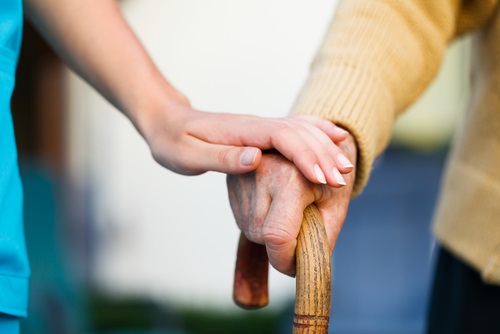Is eldercare part of the solution to the UK's ageing population?

A large majority of this care is often provided by friends and family. Given the increasing number of people having the care of elderly relatives in particular to consider, it is not surprising that there is an increasing demand to include eldercare as an extension to employee benefits packages. Providing such an option for the workforce can provide both financial and (more importantly) emotional reassurance for everyone.
There are a number of factors driving demand for eldercare as an extension to workplace benefits:
- The number of people needing care will outstrip the family members able to provide it.
- Demand is being driven by the UK’s ageing demographic, the growing number of users of health and social care, and the ‘sandwich generation’, those aged 30-60, who need to manage their work-life balance better to cope with the care of children and of elderly relatives.
- The UK’s changing demographic will create a number of challenges for employers, but perhaps the most pressing will be the need for organisations to help employees understand the realities of living longer and caring for their families across all generations.
Eldercare dental benefits
Maintaining your oral health is important, whatever your age but eldercare dental benefits gives employees the opportunity to extend their dental health package to cover their extended family – including grandparents and children, as well as themselves.
There are a number of oral health problems that can affect elderly patients in particular, including:
- Dry Mouth, caused by reduced saliva flow which can be due to some cancer treatments, certain other diseases and prescription medications. It may sound like a relatively harmless condition, but actually having reduced levels of saliva can have detrimental effects on the health of your mouth and your teeth.
- Gum disease, caused by a build-up of plaque and made worse by food left in the teeth, poor fitting bridges and dentures, poor diets and certain diseases. Gum disease can ultimately lead to tooth loss.
- Root decay, caused by exposure of the tooth root to frequent acid attacks (through acidic food and drinks) which cause decay. The roots can become exposed as gum tissue recedes from the tooth.
Regular dental examinations for all the family are a valuable and usable benefit and can help identify oral health problems often before they become a serious problem. In terms of helping to meet the healthcare needs of any elderly relatives, eldercare dental benefits can certainly help as dental health problems can all play havoc with fundamental aspects of daily life for the elderly. This can in turn affect those having to care for them – especially in terms of employee’s mental health and wellbeing, and their finances.
If you offer dental benefits as part of your employee benefits package or if you’re considering adding dental benefits, check with your provider if they offer eldercare as standard. Adding eldercare benefits could help support the overall health and wellbeing of your staff, helping to improve employee engagement and performance by lessening the concerns and worries that comes with being a carer.
This article was provided by Denplan.
Supplied by REBA Associate Member, Simplyhealth
Simplyhealth is a leading healthcare company, committed to simplifying access to affordable healthcare. Working with thousands of businesses and partners, they connect over 2 million people to best-in-class healthcare providers.







